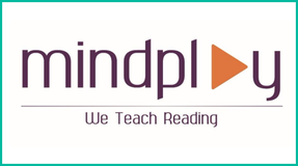
The study, “MindPlay Virtual Reading Coach: Does It Affect Reading Fluency in Elementary School?” included nearly 3,000 students and looked at research on 11 other existing reading programs as well. Researchers found that in these other solutions, which may have included additional foci, such as social and emotional learning, off-line small groups, and broader literacy instruction, “a large majority…did not lead to improved reading fluency.”
How MVRC Works
The study details how MindPlay works, after an individual diagnosis for each student using the Universal Screener tool. “Depending on the screener's outcome profile of a specific student, MVRC determines lesson/practice pairings that precisely fit the skills and gaps of the student (MindPlay Virtual Reading Coach, 2017). The lessons pertain to phonemic awareness, phonics, fluency, vocabulary, grammar for meaning, and comprehension. Lessons are delivered by an online reading coach, requiring minimal involvement of the teacher. Each lesson is followed by pertinent practice activities to enforce the material covered in a lesson. Importantly, the amount of practice is adjusted continuously, depending on a student's success rate during the practice activities. Thus, the speed at which students move through the lessons is determined by their error rate and types of errors.”
About MindPlay
Founder Judith Bliss started the MindPlay Company more than 30 years ago, to create a solution to the challenges of learning to read. After overcoming her own reading disabilities, her goal was to help struggling learners succeed in school and in life. MindPlay’s mission is to develop, publish, and distribute cost-effective learning tools that support individual growth and skill development. The curriculum includes clear objectives, inviting graphics and technological innovations.MindPlay educational software programs appeal to multiple learning styles, identify individual student needs and differentiate instruction. www.mindplay.com.
About Frontiers in Education
Frontiers in Education advances and re-defines engineering and computing education to ensure that all students receive the best possible preparation for their future. Their mission is to create an inclusive venue where excellence in research, teaching, and creative activity are valued. They bring together a multidisciplinary global community committed to improving scholarship and practice in engineering and computing education. Frontiers in Education values a collaborative, supportive and inclusive community that encourages mentorship, global discourse and professional growth. The publication is characterized by high quality scholarship that improves practices and generates new knowledge.












